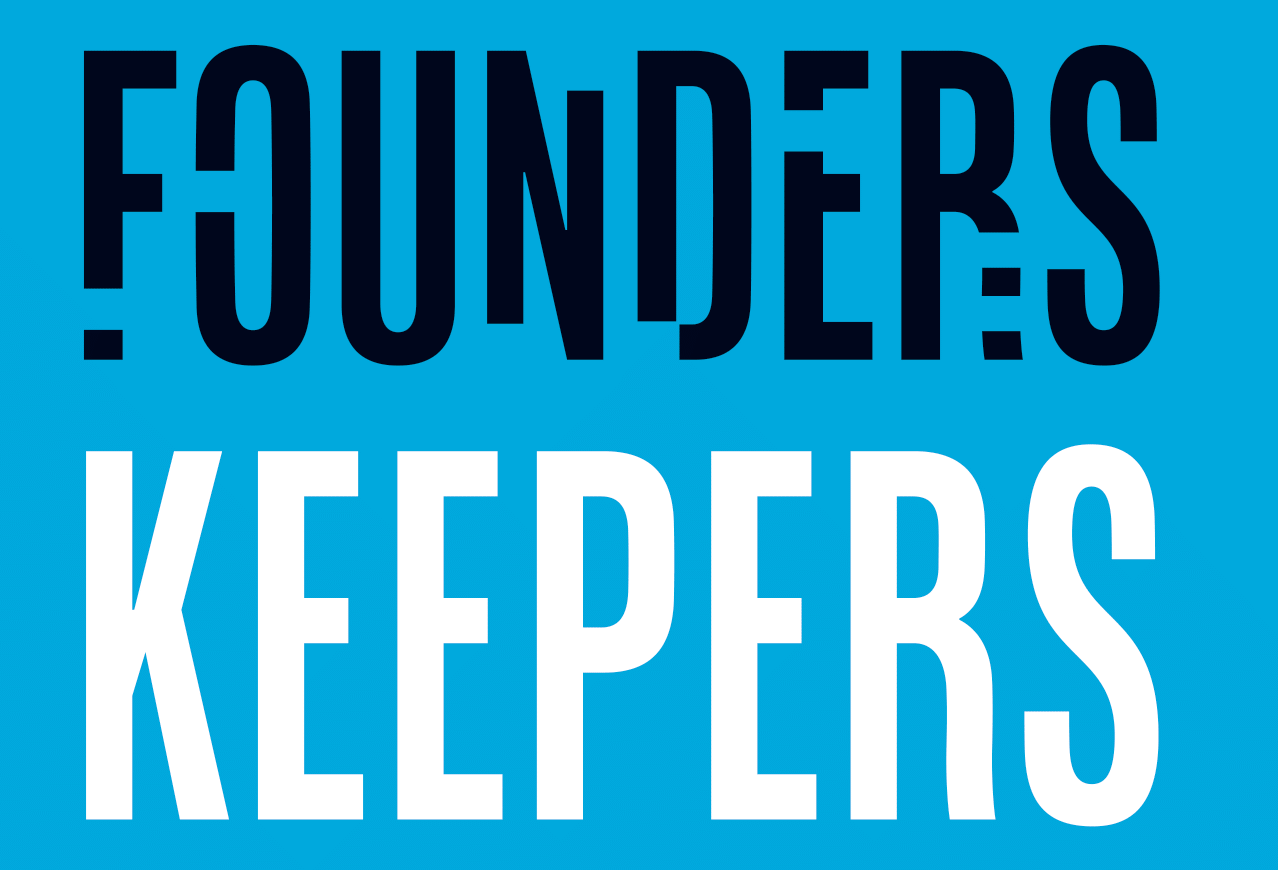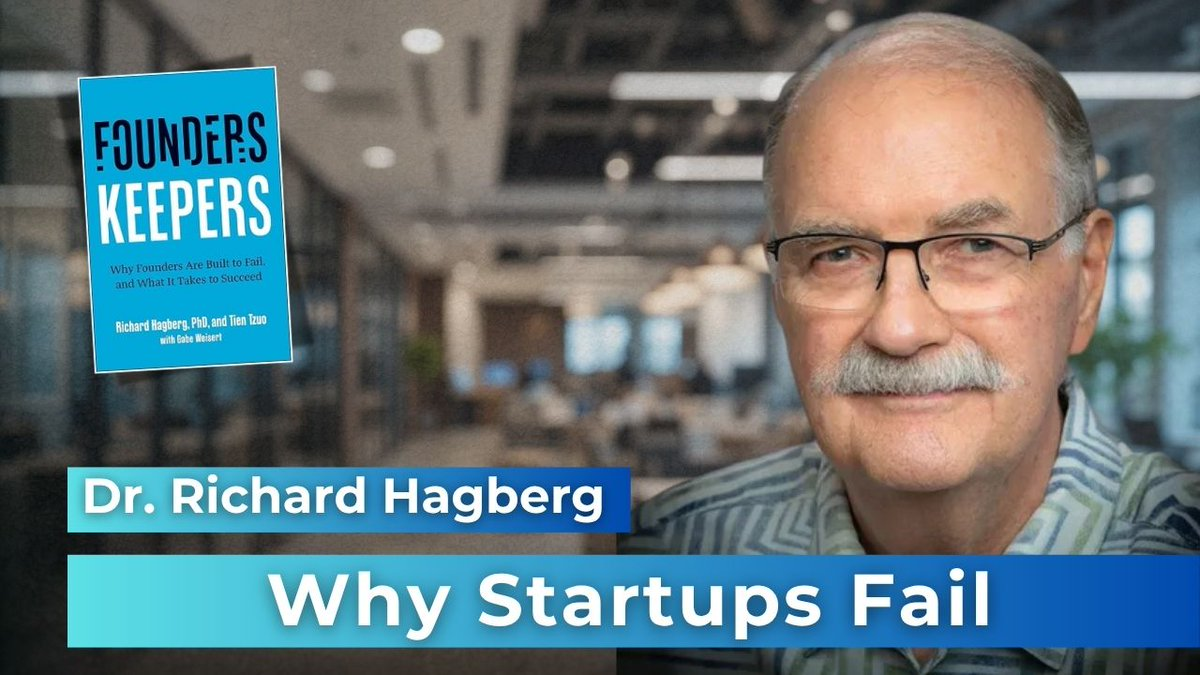Article
Unlocking Hiring Success: 10 Proven Strategies and Executive Coaching Tips for Startup Founders
June 11, 2024
Mastering the Hiring Process

Hiring the right talent is one of the most critical challenges for startup founders. With the potential to make or break a company's success, effective hiring requires a strategic approach and keen awareness of common pitfalls. In this article, we explore ten essential keys to hiring success, providing actionable insights to help founders build strong, cohesive teams. Additionally, we delve into the transformative role of executive coaching, demonstrating how personalized guidance can refine hiring processes, enhance decision-making, and ultimately drive startup growth.
Below are my top 10 strategies for achieving success in hiring:
By following these strategies, founders can significantly improve their ability to hire top talent, ensuring their team is strong, cohesive, and capable of driving the company towards its goals. Want to maximize your hiring performance, work with an experienced Leadership Coach.
Why Executive Coaching Matters
Hiring the right talent is a complex and nuanced process, requiring not only technical skills but also strong interpersonal and strategic capabilities. Founders, often focused on growth and product development, might lack the time or expertise to refine these skills independently. An experienced executive coach can provide invaluable support in several key areas to improve a founder's hiring process.
An experienced executive coach can significantly enhance a founder’s ability to hire top talent. By providing personalized feedback, developing structured processes, improving interview skills, and fostering emotional intelligence, coaches enable founders to make better hiring decisions. This investment in coaching not only improves the quality of hires but also contributes to the overall growth and success of the startup.
Below are my top 10 strategies for achieving success in hiring:
- Acknowledge Your Weaknesses
Recognize that hiring is a specialized skill. Many founders, despite their talents, are not naturally adept at interviewing or assessing candidates due to a lack of experience. This often leads to hasty decisions based on gut feelings rather than objective criteria. By admitting this limitation, you open the door to seeking expert advice and support, such as hiring a seasoned recruiter or using structured interviewing techniques. This self-awareness can prevent costly mis-hires and improve the overall quality of your team.
- Develop a Disciplined Hiring Process Establish a structured hiring process that includes multiple stages: detailed job descriptions, candidate sourcing, thorough interviews, and gathering feedback from references. This process should be documented and followed consistently to ensure every candidate is evaluated on the same criteria. A well-defined process helps avoid impulsive decisions and provides a clear framework for comparing candidates. Additionally, involving multiple team members in the process can provide diverse perspectives and reduce biases.
- Hire for Team Chemistry, Not Just Individual Talent While individual skills and experience are important, how a candidate fits within the existing team dynamics is crucial for long-term success. Look for candidates who complement the strengths and weaknesses of your current team members. This means considering their interpersonal skills, work style, and ability to collaborate effectively. Avoid the trap of hiring only "rock stars" who may have strong individual capabilities but struggle to work well with others, leading to friction and reduced overall team performance.
- Use Data-Driven Hiring Tools Implementing data-driven tools, such as personality assessments and job scorecards, can provide objective measures of a candidate's suitability. These tools help identify key traits and skills that align with the job requirements and company culture. For example, a job scorecard outlines the specific competencies, experiences, and outcomes expected from the role, providing a clear benchmark for evaluating candidates. This approach minimizes the risk of biases influencing hiring decisions and ensures a more thorough and fair assessment process.
- Diversify Your Candidate Pool T o find the best talent, it’s essential to cast a wide net beyond your immediate network. Relying solely on personal connections can lead to a homogenous team that lacks diverse perspectives. Engage your investors, board members, and professional networks to reach a broader pool of candidates. Additionally, consider using specialized recruiting firms that have access to talent in niche areas. A diverse team brings varied viewpoints and problem-solving approaches, which can drive innovation and better decision-making.
- Practice Extreme Backchanneling Backchanneling involves gathering informal feedback about a candidate from their former colleagues and supervisors. This process goes beyond standard reference checks to uncover deeper insights into the candidate’s performance, work ethic, and interpersonal skills. Focus on specific, concrete questions about the candidate’s past behavior, such as their role in projects, challenges faced, and interactions with team members. This detailed feedback can reveal potential red flags or confirm the candidate’s suitability for your team.
- Sell Your Vision Interviews are not just about assessing candidates; they are also an opportunity to sell your company’s vision and culture. Talented candidates often have multiple job offers and need to be convinced that your startup is the right choice. Share your company’s mission, values, and growth potential. Highlight the impact they can make and the opportunities for personal and professional growth. A compelling vision can attract candidates who are passionate about your mission and willing to invest their talents in your startup.
- Adapt to Different Stages of Growth The type of talent your startup needs will evolve as the company grows. Early on, you may need generalists who can wear multiple hats and handle a variety of tasks. As you scale, the need for specialists and experienced leaders increases. These individuals bring expertise in specific areas, such as product development, marketing, or operations, and can help navigate the complexities of scaling a business. Continuously reassess your hiring needs based on your company’s growth stage and adjust your recruitment strategy accordingly.
- Leverage Recruiting Firms Strategically Choosing the right type of recruiting firm can significantly impact your hiring success. Contingency recruiters are useful for quickly filling mid-level positions without upfront costs. Retained search firms are ideal for senior roles where the impact of a hire is significant, offering a dedicated and thorough search process. Boutique firms provide niche expertise, particularly valuable for specialized roles. In-house recruiters, once the company has reached a certain size, offer long-term alignment with your culture and continuous talent pipeline development. Recruitment process outsourcing (RPO) firms can handle large-scale hiring needs efficiently, though with potential cultural misalignment risks.
- Emphasize Flexibility and Innovation To attract top talent, emphasize the dynamic environment and the innovative, disruptive nature of your startup. Highlight the opportunities for creativity, problem-solving, and personal growth within your company. Candidates who thrive in such environments are often more adaptable and capable of handling the ambiguity and challenges that come with startup life. Showcase your company’s flexibility, such as remote work options or flexible hours, to appeal to candidates who value work-life balance and the freedom to innovate.
By following these strategies, founders can significantly improve their ability to hire top talent, ensuring their team is strong, cohesive, and capable of driving the company towards its goals. Want to maximize your hiring performance, work with an experienced Leadership Coach.
Why Executive Coaching Matters
Hiring the right talent is a complex and nuanced process, requiring not only technical skills but also strong interpersonal and strategic capabilities. Founders, often focused on growth and product development, might lack the time or expertise to refine these skills independently. An experienced executive coach can provide invaluable support in several key areas to improve a founder's hiring process.
- Personalized Assessment and Feedback
Executive coaches offer personalized feedback based on thorough assessments of a founder's strengths and weaknesses. This tailored approach helps founders understand their natural biases and blind spots that may affect their hiring decisions. By working with an executive coach, founders can develop a more objective and balanced perspective, leading to better hiring outcomes.
- Developing a Structured Hiring Process
An executive coach can assist in designing and implementing a structured hiring process. They bring expertise in best practices for job descriptions, interview techniques, and candidate evaluations. With a coach’s guidance, founders can create a consistent and repeatable process that reduces the risk of bad hires and ensures that all candidates are assessed fairly and thoroughly.
- Enhancing Interview Skills
Many founders struggle with the interpersonal aspects of interviewing, such as active listening, reading non-verbal cues, and building rapport. An executive coach can provide training and practice sessions to improve these skills. They can role-play interview scenarios, offer constructive feedback, and help founders develop the confidence and competence needed to conduct effective interviews.
- Improving Decision-Making
Executive coaches help founders enhance their decision-making capabilities by teaching them how to evaluate candidates based on objective criteria rather than gut feelings. They can introduce data-driven tools and techniques for assessing candidate fit, such as competency models and behavioral interview questions. This structured approach leads to more informed and rational hiring decisions.
- Facilitating Self-Awareness and Emotional Intelligence
Effective hiring requires a high level of self-awareness and emotional intelligence. Executive coaches work with founders to develop these traits, helping them become more attuned to their own emotions and those of others. This increased emotional intelligence enables founders to better understand candidate motivations, assess cultural fit, and create a positive interview experience.
- Building a Positive Company Culture
An executive coach can guide founders in defining and communicating their company culture and values. This clarity helps attract candidates who align with the company’s mission and vision. Coaches also assist in integrating new hires into the company culture, ensuring a smooth onboarding process and higher retention rates.
- Navigating Difficult Conversations
Hiring often involves difficult conversations, such as providing feedback to unsuccessful candidates or making tough decisions about current team members. An executive coach can provide strategies and frameworks for handling these conversations with empathy and professionalism. This skill is crucial for maintaining a positive employer brand and fostering a respectful work environment.
- Continuous Improvement
The hiring process is not a one-time event but an ongoing activity that evolves with the company. Executive coaches help founders establish a culture of continuous improvement by regularly reviewing and refining their hiring practices. This iterative approach ensures that the hiring process remains effective and aligned with the company’s changing needs.
An experienced executive coach can significantly enhance a founder’s ability to hire top talent. By providing personalized feedback, developing structured processes, improving interview skills, and fostering emotional intelligence, coaches enable founders to make better hiring decisions. This investment in coaching not only improves the quality of hires but also contributes to the overall growth and success of the startup.
Discover the transformative power of Dr. Rich Hagberg's leadership coaching, rooted in data-driven analysis. With decades of experience, Dr. Hagberg excels in enhancing self-awareness, balancing strengths and weaknesses, and fostering effective decision-making. His tailored approach helps founders build strong teams and navigate growth challenges seamlessly. Ready to elevate your leadership skills and drive your startup to success?
Learn more about Dr. Rich Hagberg's coaching services or contact him today to start your journey.
Learn more about Dr. Rich Hagberg's coaching services or contact him today to start your journey.
share this
Related Articles
Related Articles

The Leadership Tightrope If you lead long enough, you start to realize something uncomfortable: everything that makes you effective also threatens to undo you. Your drive becomes impatience. Your confidence becomes stubbornness. Your empathy turns into guilt. The longer you lead, the more you realize that the job isn’t about choosing one trait over another — it’s about learning to carry both. That’s what maturity looks like in leadership. It’s not balance. It’s tension well managed. The False Comfort of Either/Or Most leaders crave clarity. We want rules. Playbooks. Certainty. Should I be tough or kind? Decisive or collaborative? Visionary or practical? The insecure part of the brain hates contradiction. It wants the “right answer.” But leadership lives in the messy middle — the place where both truths exist, and neither feels comfortable. The best leaders aren’t either/or thinkers. They’re both/and navigators. A Story from the Field I once coached a CEO who told me, “I’m torn between holding people accountable and being empathetic.” I said, “Why do you think those are opposites?” He paused, then laughed. “Because it’s easier that way.” Exactly. It’s easier to pick a lane than to learn how to drive in two at once. He eventually realized the real question wasn’t which side to choose, but when and how to lean into each. He became known as “the fairest tough boss in the building.” That’s the magic of integration — toughness with tenderness, vision with realism, clarity with compassion. Why Paradox Feels So Hard Contradictions feel like hypocrisy when you haven’t made peace with your own complexity. If you believe you have to be one consistent version of yourself — confident, decisive, inspiring — then every moment of doubt feels like fraud. But the truth is, great leaders are contradictory because humans are contradictory. You can be grounded and ambitious, humble and proud, certain and still learning. The work is not to eliminate the tension — it’s to get comfortable feeling it. The Psychology Behind It Our brains love binaries because they make the world simple. But complexity — holding opposites — is the mark of advanced thinking. Psychologists call this integrative complexity — the ability to see multiple perspectives and blend them into a coherent approach. It’s not compromise; it’s synthesis. It’s saying, “Both are true, and I can move between them without losing my integrity.” That’s where wisdom lives — in the movement, not the answer. Funny But True A client once told me, “I feel like half monk, half gladiator.” I said, “Congratulations. That means you’re leading.” Because that’s what the job demands: peace and fight, compassion and steel. If you can’t hold both, you end up overusing one until it breaks you. The Cost of One-Dimensional Leadership We’ve all worked for the “results-only” leader — brilliant, efficient, and emotionally tone-deaf. And the “people-first” leader — kind, loyal, and allergic to accountability. Both are exhausting. Both create lopsided cultures. When leaders pick a single identity — visionary, disciplinarian, nurturer, driver — they lose range. They become caricatures of their strengths. True greatness comes from emotional range, not purity. The Paradox Mindset Here’s how integrative leaders think differently: They value principles over preferences. They can be decisive without being defensive. They know empathy isn’t weakness and toughness isn’t cruelty. They trade perfection for adaptability. They’re the ones who can zoom in and out — from the numbers to the people, from the details to the meaning — without losing coherence. They’re not consistent in behavior. They’re consistent in values. That’s the difference. How to Practice Both/And Thinking Spot your overused strength. The strength that’s hurting you most is the one you lean on too much. If you’re decisive, try listening longer. If you’re compassionate, try being direct faster. Ask, “What’s the opposite quality trying to teach me?” Impatience teaches urgency; patience teaches perspective. You need both. Invite your opposite. Bring someone onto your team who balances your extremes — not a mirror, a counterweight. Hold paradox out loud. Tell your team, “This decision has tension in it — and that’s okay.” Modeling that normalizes complexity for everyone else. A Moment of Self-Honesty I’ve spent decades watching leaders chase “clarity” like it’s peace. But peace doesn’t come from eliminating tension. It comes from trusting yourself inside it. Once you accept that leadership will always feel contradictory, you stop fighting it — and start flowing with it. You don’t need to be the calmest, toughest, or most visionary person in the room. You just need to be the one who can stay whole while the world pulls you in opposite directions. Your Challenge This Week When you catch yourself thinking, “Should I be X or Y?” — stop. Ask instead, “How can I be both?” Then practice it in one small moment. Be kind and firm. Bold and humble. Fast and thoughtful. That’s where growth hides — in the discomfort between two truths. Final Word The best leaders aren’t balanced. They’re integrated. They’ve stopped trying to erase their contradictions and started using them as fuel. They’ve learned that leadership isn’t about certainty. It’s about capacity — the capacity to hold complexity without losing your center. That’s not chaos. That’s mastery
STAY UP TO DATE
GET PATH'S LATEST
Receive bi-weekly updates from the church, and get a heads up on upcoming events.
Contact Us










